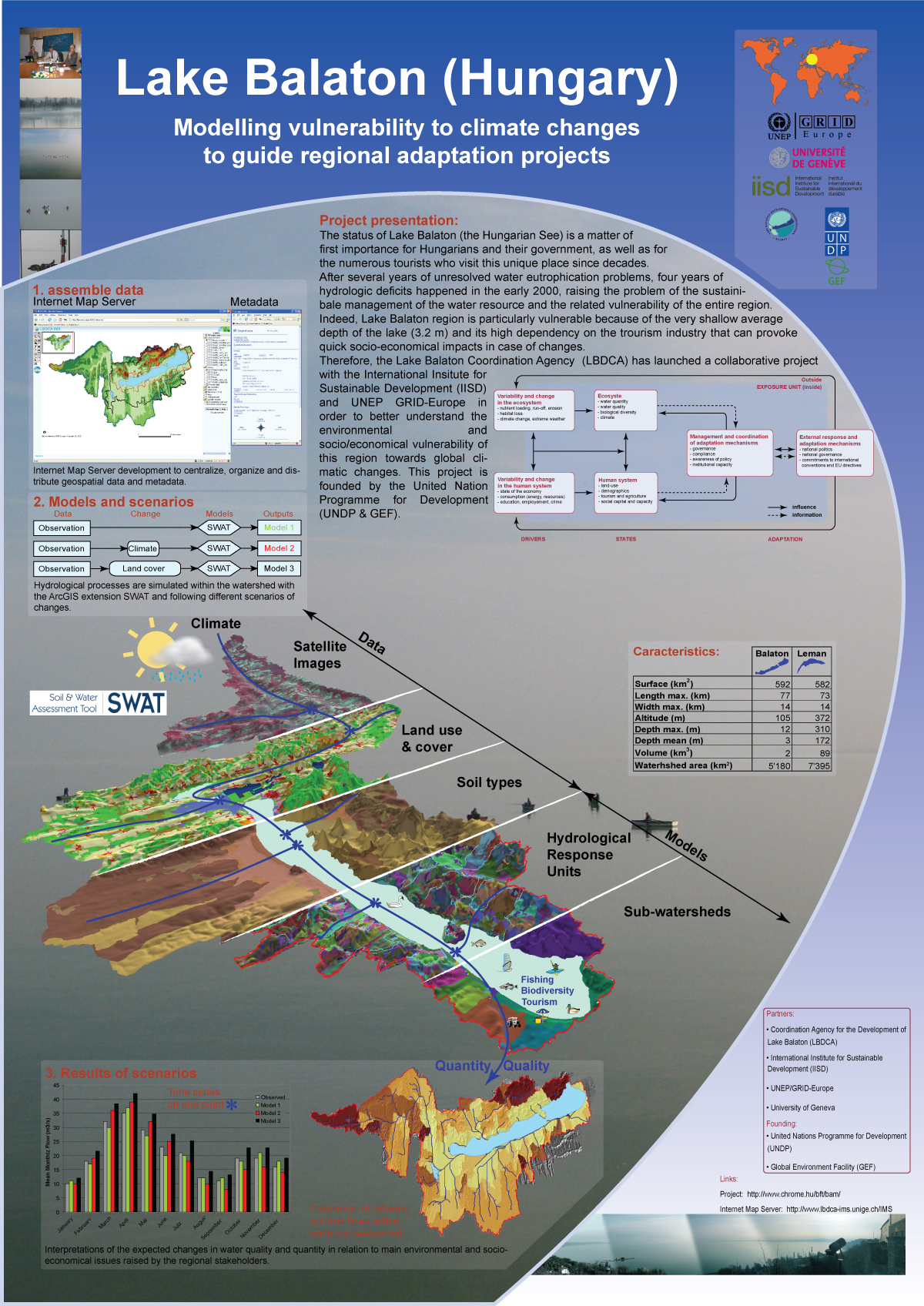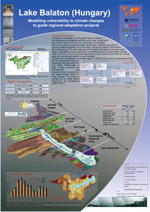Resource
Lake Balaton (Hungary): Modelling vulnerability to climate changes
Description
The status of Lake Balaton (the Hungarian See) is a matter of first importance for Hungarians and their government, as well as for the numerous tourists who visit this unique place since decades. After several years of unresolved water eutrophication problems, four years of hydrologic deficits happened in the early 2000, raising the problem of the sustainable management of the water resource and the related vulnerability of the entire region. Indeed, Lake Balaton region is particularly vulnerable because of the very shallow average depth of the lake (3.2 m) and its high dependency on the tourism industry that can provoke quick socio-economical impacts in case of changes. Therefore, the Lake Balaton Coordination Agency (LBDCA) has launched a collaborative project with the International Institute for Sustainable Development (IISD) and UNEP GRID-Geneva in order to better understand the environmental and socio/economical vulnerability of this region towards global climatic changes. This project is founded by the United Nation Programme for Development (UNDP & GEF)
